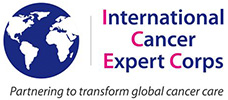Background
The World Health Organization global status report (2010) and a related United Nations declaration (2012) brought attention to the rapidly growing burden of non-communicable diseases in Low- and Middle-Income Countries (LMIC).
Globally, cancer is a growing and progressively urgent problem from medical, health system, business, work force, economic and ethical perspectives. The case burdens are increasing in LMICs and also in rural underserved areas in resource-rich countries, and by various measures outcomes are significantly worse than in high-income countries and regions.
Solution
The solution to improve the lives of people in these cancer health disparity settings requires a sustainable approach to build local capability and capacity. Because cancer has been called the “Emperor of all Maladies,” it has the attention of people in both resource-rich and -poor settings and serves as a common global problem upon which to build partnerships to develop novel highly collaborative and sustainable approaches.
Approach
ICEC is undertaking a unique approach towards “Partnering to transform global cancer care”. It is an international effort from the outset involving world renowned individuals and institutions who work with people in the health disparity settings, to help develop programs and solutions defined and driven by those who understand the complex issues within their communities.
Technology suitable for the infrastructure and the substantial advances in telecommunications to reach remote settings will be crucial; however solutions depend on people dedicated to solving the challenging set of problems.
Mentoring & Partnering
Through mentoring and partnering, ICEC focuses on developing the expertise with a sustainable person-to-person model that recognizes the breadth of skills and experience required and also the need to transform the value system for healthcare careers so that altruistic human service is an integral and not an add-on component.
Objectives
In that the establishment of ICEC itself is implementation science and ICEC enables research to be conducted by and for the benefit of those in health disparities regions. Metrics are used to assess progress, develop novel strategies and share experience among the network of global partners.
The breadth and depth of ICEC is such that individual programs in LMICs will not be dependent on single individuals to insure that long-term investment by the local community, industry and committed individuals has a high probability of success.

